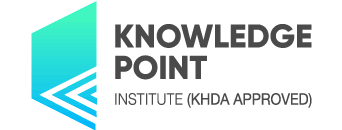- مدة الدورة التدريبية: Upto 32 Hours
تفاصيل الدورة
Certified Lean Six Sigma Green BeltThe IASSC Certified Lean Six Sigma Green Belt™ (ICGB™) is a professional who is well versed in the core to advanced elements of Lean Six Sigma Methodology, who leads improvement projects and / or serves as a team member as a part of more complex improvement projects lead by a Certified Black Belt, typically in a part-time role. A Lean Six Sigma Green Belt possesses a thorough understanding of all aspects of the Lean Six Sigma Method including competence in subject matters contained within the phases of Define, Measure, Analyze, Improve and Control (DMAIC) as defined by the IASSC Lean Six Sigma Green Belt Body of Knowledge™. A Lean Six Sigma Green Belt understands how to implement, perform, interpret and apply Lean Six Sigma at a high level of proficiency.
Green Belt Body of Knowledge
The IASSC Green Belt Lean Six Sigma Body of Knowledge™ is an assembly of a comprehensive set of topics and subject matters that are intended to be representations of the universally and commonly accepted, minimum competencies and core proficiencies requisite of Lean Six Sigma Green Belts.
This well-established IASSC Standard is diversely recognized as a relevant and practical version of the knowledge expectations of Lean Six Sigma Green Belt. It consists of the primary sections of Define, Measure, Analyze, Improve and Control, which are each broken down into sub-categories consisting of individual subject matter topics.
IASSC Universally Accepted Lean Six Sigma Body of Knowledge for Green Belts
Define Phase
The Basics of Six Sigma
Meanings of Six Sigma
General History of Six Sigma & Continuous Improvement
Deliverables of a Lean Six Sigma Project
The Problem Solving Strategy Y = f(x)
Voice of the Customer, Business and Employee
Six Sigma Roles & Responsibilities
The Fundamentals of Six Sigma
Defining a Process
Critical to Quality Characteristics (CTQ’s)
Cost of Poor Quality (COPQ)
Pareto Analysis (80:20 rule)
Basic Six Sigma Metrics
a. including DPU, DPMO, FTY, RTY Cycle Time, deriving these metrics and these metrics
Selecting Lean Six Sigma Projects
Building a Business Case & Project Charter
Developing Project Metrics
Financial Evaluation & Benefits Capture
The Lean Enterprise
Understanding Lean
The History of Lean
Lean & Six Sigma
The Seven Elements of Waste
a. Overproduction, Correction, Inventory, Motion, Overprocessing, Conveyance, Waiting.
5S
a. Straighten, Shine, Standardize, Self-Discipline, Sort
Measure Phase
Process Definition
Cause & Effect / Fishbone Diagrams
Process Mapping, SIPOC, Value Stream Map
X-Y Diagram
Failure Modes & Effects Analysis (FMEA)
Six Sigma Statistics
Basic Statistics
Descriptive Statistics
Normal Distributions & Normality
Graphical Analysis
Measurement System Analysis
Precision & Accuracy
Bias, Linearity & Stability
Gage Repeatability & Reproducibility
Variable & Attribute MSA
Process Capability
Capability Analysis
Concept of Stability
Attribute & Discrete Capability
Monitoring Techniques
Analyze Phase
Patterns of Variation
Multi-Vari Analysis
Classes of Distributions
Inferential Statistics
Understanding Inference
Sampling Techniques & Uses
Central Limit Theorem
Hypothesis Testing
General Concepts & Goals of Hypothesis Testing
Significance; Practical vs. Statistical
Risk; Alpha & Beta
Types of Hypothesis Test
Hypothesis Testing with Normal Data
1 & 2 sample t-tests
1 sample variance
One Way ANOVA
a. Including Tests of Equal Variance, Normality Testing and Sample Size calculation, performing tests and interpreting results.
Hypothesis Testing with Non-Normal Data
Mann-Whitney
Kruskal-Wallis
Mood’s Median
Friedman
1 Sample Sign
1 Sample Wilcoxon
One and Two Sample Proportion
Chi-Squared (Contingency Tables)
a. Including Tests of Equal Variance, Normality Testing and Sample Size calculation, performing tests and interpreting results.
Improve Phase
Simple Linear Regression
Correlation
Regression Equations
Residuals Analysis
Multiple Regression Analysis
Non- Linear Regression
Multiple Linear Regression
Confidence & Prediction Intervals
Residuals Analysis
Data Transformation, Box Cox
Control Phase
Lean Controls
Control Methods for 5S
Kanban
Poka-Yoke (Mistake Proofing)
Statistical Process Control (SPC)
Data Collection for SPC
I-MR Chart
Xbar-R Chart
U Chart
P Chart
NP Chart
Xbar-S Chart
CuSum Chart
EWMA Chart
Control Chart Anatomy
Six Sigma Control Plans
Cost Benefit Analysis
Elements of the Control Plan
Elements of the Response Plan
تحديث بتاريخ 10 April, 2023
المتطلبات
Requirements
In order to achieve the professional designation of IASSC Certified Green Belt (IASSC-CGB™) from the International Association for Six Sigma Certification, candidates must sit for the IASSC Certified Lean Six Sigma Green Belt Exam and achieve a minimum score of 385 points out of a total potential of 500 points.
There are no prerequisites required in order to sit for the IASSC Certified Lean Six Sigma Green Belt Exam.
Certification Testing
The IASSC Certified Lean Six Sigma Green Belt Exam™ is a 100 question, closed book, proctored exam with a 3 hour allotted time.
The Exam contains approximately 20 multiple-choice and true/false questions from each major section of the IASSC Lean Six Sigma Green Belt Body of Knowledge and is administered in more than 8,000 Testing Centers located within 165 countries throughout the world and through the IASSC Web-Based On-Demand testing system and by hundreds of IASSC Accredited Providers.
وظائف مناسبة لهذه الدورة
Quality Professionals , functional managers , divisional heads , healthcare , project managers , engineers , head of department- Six Sigma and Lean Process Diploma London Institute of Business & Management17 USD
180 USDمدة الدورة التدريبية: Upto 15 Hours - Lean Six Sigma Green Belt Training GreyCampus270 USDمدة الدورة التدريبية: Upto 14 Hours

